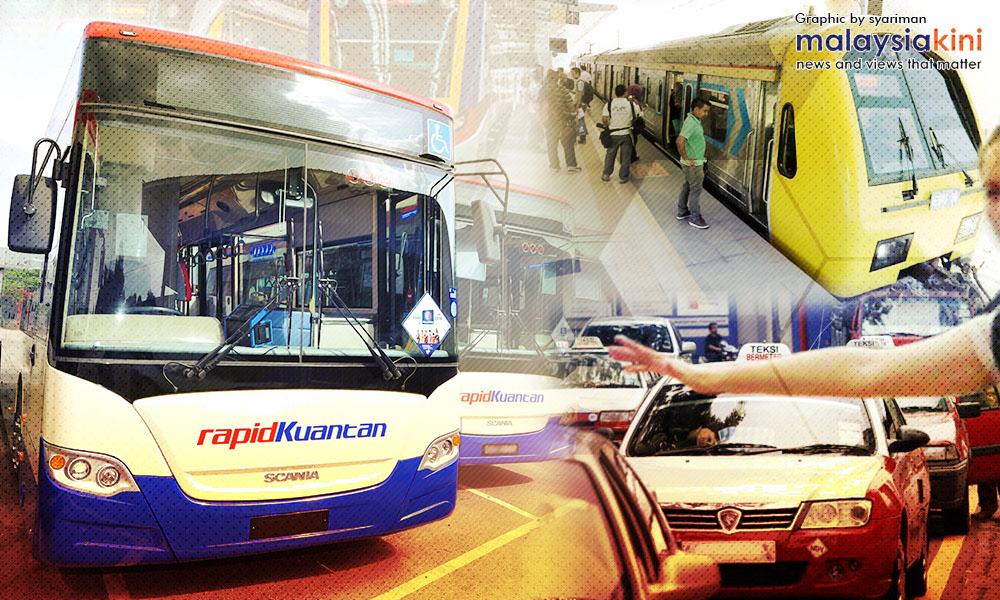
In the past few years, public transport in Malaysia has had a flurry of developments - from the completion of the Sungai Buloh-Kajang MRT line to the myBAS initiative in state capitals.
The government has also given commuters a happy start to the year with the introduction of the My50 and My100 transport passes, and the increase in frequency on the Kelana Jaya line during peak hours.
However, our transit system is still in shambles even with all these initiatives. For-profit public transit operators still run their buses late. Bus terminals and stops still look shabby and remain poorly maintained by city councils and transit authorities.
And let’s be honest: it is a hassle to move from our homes to the train station. Ultimately, it all boils down to commuting time. Riding public transport is still much, much slower than driving here.
The increase in public transit ridership, as well as the recent call for a better public transport system, should have alerted authorities to pen down new goals for this year so they can improve on the system.
First, delayed projects by the former Spad (Land Public Transport Commission) should be completed this year. Spad’s plan to integrate KTM and RapidKL under a single ticketing system was announced in 2015 and was supposed to be implemented in 2017, but after three years, this has yet to become a reality.
What’s more frustrating is Spad’s Journey Planner; the app’s release date has been constantly delayed time and time again, with the last announcement about it stating that it’ll be released in the second quarter of 2018. The Transport Ministry and the newly-formed Apad (Land Public Transport Agency) should take the responsibility of these long-awaited projects and complete them before the year ends.
Besides that, Apad should also take steps to push for higher standards for bus operators. One of the things it should do is create a standard operating procedure and rules for bus drivers to adhere to so that they can act professionally, and passengers treated well from departure to arrival. This includes things like communication between the driver and commuters, the way the bus departs and arrives, and break times for drivers.
Bus operators should be evaluated through surprise visits by officers during bus trips, so Apad can recognise problems and point them out to the top management of the operators.
Operators must start to communicate more with users of their services. One of the ways they can do this is by taking advantage of social media. Most operators don’t even have a Facebook page, and even if they do, they don’t give enough information to the commuters, such as route diversions and schedule changes. This should be fixed by operators forming a social media team in order for them to communicate live with users.
Open data should be embraced by operators, too, by having ridership statistics not just for trains, but also for bus routes and stations, go public. Live GPS data from public transit should also be made available for third-party apps like Google Maps for our convenience.
This year, I believe improving bus infrastructure should be the focus as the bus experience is poor and low quality. City councils should plan and construct safe and disabled-friendly walkways between nearby existing bus stops and train stations, along with good signage. Bus shelters should be constructed or renovated to protect commuters against rain and heat.
Segregated bus lanes need to be built on roads with high bus traffic to decrease bus travel time significantly and make trips as comfortable as riding on a train. Most, if not all, of our bus hubs are in shabby, uncomfortable conditions, and should be renovated so that buses become more trustworthy to the rakyat. Singapore should be taken as an example.
Other than that, the government should also shift its focus to other cities rather than focusing on improving public transport only in Kuala Lumpur. Transport planners in collaboration with state governments need to pin-point transport problems in major cities and formulate a plan to kickstart public transport usage there.
If we’re going to improve our public transport, it needs to start right now. Start accepting our mistakes, learn from them, and prevent them from happening again. Learn from how sustainable cities plan and run their transit systems, not just follow our desires to look “modern and slick”, building lavish projects that benefit us little.
In the end, what we commuters want is a transit system that gets us to our destinations quickly and at low fares. I personally hope that the new government will be more transparent with its plans for transport infrastructure this year, and listen to the people and experts. - Mkini



No comments:
Post a Comment
Note: Only a member of this blog may post a comment.